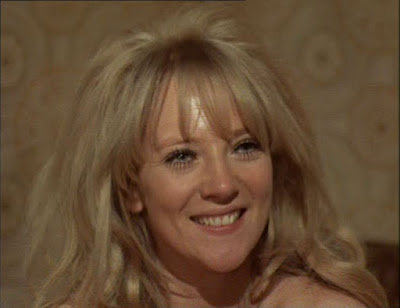This film is one of those late sixties treats served up with fascinating locations and post-psychedelic style and making the most of the increasing laxity of censorship and the decriminalisation of homosexuality with The Sexual Offences Act 1967. It’s a huge variety bag of richly-flavoured chocolates that leaves you feeling a little queasy by the end and that was probably the intention; folk on IMBD have mixed feelings about it but it’s got a fabulous cast and something to say as it ticks off the boxes of incest, transvestism, queer culture and deep psychological disorder.
Sixties It Girl supreme Judy Geeson gives one of her best performances in my opinion playing against type as the firm-willed and more grounded of a pair of twins at the heart of the action. Many times Judy was required to play ultra-pretty and very sweet, which she excelled at, but here her job is not to be likeable but to illustrate how relationships of damaging inter-reliance and child-like intensity can persist in the real world. Not for nothing was this film retitled Twinsanity (yuck) for a rerelease, as Judy is Jacki, sibling to Julian, and together they present what looks like easy pickings for London’s swinging hipsters but, as Jacki keeps on saying, they can look after themselves.
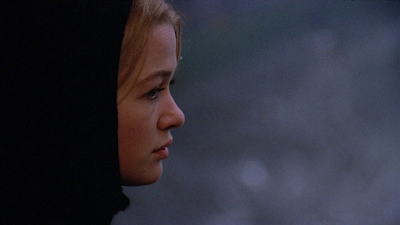 |
| Judy Geeson |
The psychopathic Yang to Jacki’s Yin is played by Martin Potter, rolling straight off the back of his startling turn in Fellini’s Satyricon (1969) into a world only slightly stranger. The last time I saw Mr Potter he was playing in the real world as a policeman mixing with the wrong crowd in All Coppers Are… (1971) and here he shows once again how he can be an unsettling presence, a febrile performer whose eyes give everything and nothing away. Whilst Judy presents as fun-loving and ultimately sound of mind, Martin gives only nervy uncertainty. This is true of his obviously inappropriate – and illegal – feelings for his sister, but we just don’t know what he is capable of doing.
The twins arrive in the capital from the west country by coach, snaking along the Westway/M4 and making their way to a flat in Cheyne Walk with a fine view of the Chelsea north bank, power station still smoking. We are given an immediate indication of their wayward sense of purpose when they take out their disapproving landlady by placing their treasured toy cat, Agamemnon on the top stair so that she trips and falls as they run from the building, alibi intact. They defer to Agamemnon in all important decisions (the film is based on the novel, Ask Agamemnon by Jenni Hall), a reflection of their childish intimacies but also unhinged morality: they happily let the toy make their choices.
 |
| Judy Geeson and Martin Potter, playing an attentive brother... |
Another actor whose eyes give away unsettling possibilities is Alexis Kanner, a French born Canadian actor of no fixed accent here but who displays his usual twisted energies as deployed so effectively in The Prisoner, Connecting Rooms (1970) and elsewhere. Kanner plays hipster gadabout Clive Landseer who meets the twins in a crowded bar watching a drag show at the Royal Vauxhall Tavern (plus ca change eh?) and pulls them into his sleezy world of free-flowing sexuality, non-stop partying and general debauchery. He focuses attention on Jacki and tries to hand over his friend Denise (Marion Diamond) to Julian who looks on in panic at Jacqui’s removal from his side.
Clive invites them to his friend’s river boat for a party, here we find all manner of louche characters, including a smartly dressed Freddie Jones as David Curry, watching the action from a hammock, as the twins arrive and cause a stir as Jacki dances with Clive and Julian stares daggers. Much to Denise’s upset he soon cuts in and the whole room looks on in shock or groovy approval as the siblings get very close.
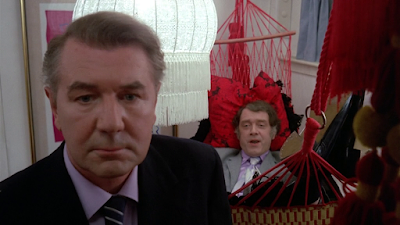 |
| Mike and Fred |
An MP arrives, James Harrington-Smith (Michael Redgrave always a class act even struggling with the early onset of Parkinson’s) who discusses art with an impressed Jacki as, again, Julian looks on with desperation. The twins leave spurred on by Julian’s increasing anxiety and are accompanied by Clive and Denise as whiskey is drunk and arguments are had at the twins’ flat. Clive decides to tackle the main issue by getting Julian to accompany him on an adventure, plying him with more drink and phoning ahead to arrange a special entertainment at a seedy hotel. Staggering into room 104 Julian’s eyes light up as he sees two dolly birds in miniskirts… by the time he realises that they’re boys, not girls, it’s too late and the camera cuts as in his shock he is overwhelmed by the, um, circumstances.
The next morning Julian recovers his poise back in the reassuring presence of his sister but this will not be the last he hears of this night. Clive has been dodging his bookie, Rod (the ace Mike Pratt) who previously came looking for him at the boat party, promising him a beating as an incentive to pay up on his accumulating debt. Rod had visited the flat the night before finding only the two women and when Clive visits Jacki later in the day, he corners him and makes his point; a couple of body blows as a taster for the retribution to come.
 |
| Here come the girls... |
Clive is in some spot and almost reluctantly, decides the only way is to blackmail Julian to get the money, presenting him with a collection of photographs depicting the previous night’s entertainment. The only trouble is Julian doesn’t have the money and the only trouble for Clive is, you don’t take on one of the twins without taking them both on and, as Jacki has always pointed out… they can look after themselves.
The stage is set for a traumatic closing segment in which both Judy and Martin perform superbly as does Redgrave in what appeared to be a bit part.
Dusty Verdict: Not a film you watch for pure enjoyment or nostalgia, there are some real points to make and a dedication to the uncomfortable realities behind the rapidly fading myths of sixties hedonism. As I’ve said, the actors are all on form and I really think this is one of Judy G’s most interesting portrayals.
The mood has been said to be uneven but director Alan Gibson is just showing the push and pull of reality versus the twin’s world, an unreality dominated not so much by the obsessive sociopathic Julian but the character they project into Agamemnon the cat.


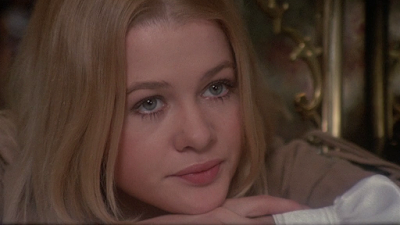



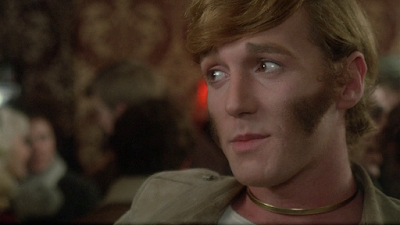










.JPG)
.JPG)
%20angry.JPG)
%20casing.JPG)
%201.JPG)
.JPG)
%201.JPG)
.JPG)
.JPG)
.JPG)
%20champers.JPG)
%201.JPG)
%20champers.JPG)
.JPG)
%202.JPG)
%20c.JPG)
.JPG)






